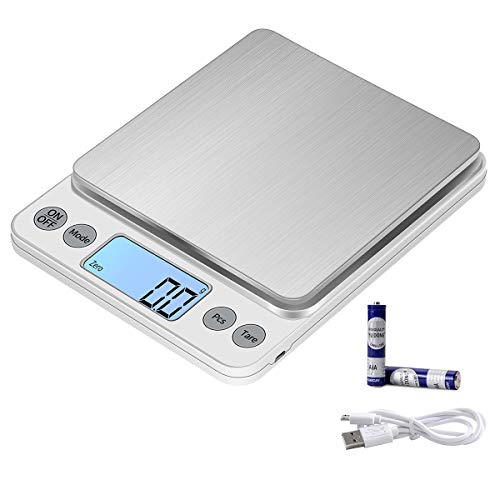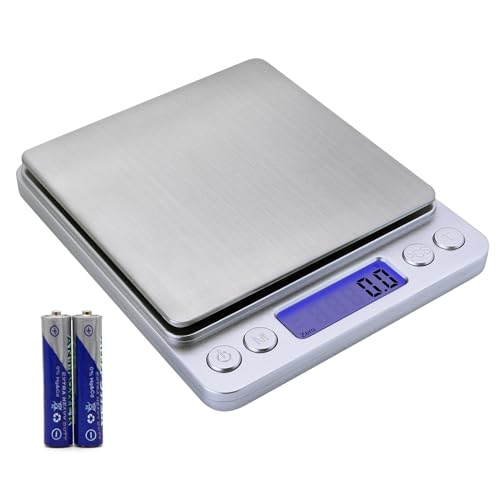In general, wouldn't reverse osmosis water be safe for soapmaking? I understand the dangers of tap water, but now I'm curious about RO specifically.She does say that she uses "filtered" tap water. Than can be anything from a store-bought water container with a filter on it, to a water softening system, to a reverse-osmosis system... or a combination thereof. So it's possible that her water is filtered enough to avoid DOS. Again, I find this irresponsible, but I guess that's on her.
You are using an out of date browser. It may not display this or other websites correctly.
You should upgrade or use an alternative browser.
You should upgrade or use an alternative browser.
Please help in Palmolien and canola oil recipe
- Thread starter fnddoctor
- Start date
-
- Tags
- cp soap palm oil palm olein

Help Support Soapmaking Forum:
This site may earn a commission from merchant affiliate
links, including eBay, Amazon, and others.
...she's pulling off some magic trick to get away with things she's not supposed to - who gave her this privilege...
It's not clear to me that you're actually joking here. The tone here is coming across as harsh, even though it's veiled with an emoticon.
While I might feel the need to agree to disagree with others who use tap water when making soap, this kind of comment isn't approprate. I suggest choosing kinder language to make one's point.
Yes, I believe so. But my point is that we don't know what type of filter she's using, and not all filters are created equal. By not being more specific to her audience, some may be misled into using lesser filters that aren't sufficient for soapmaking.In general, wouldn't reverse osmosis water be safe for soapmaking? I understand the dangers of tap water, but now I'm curious about RO specifically.
That makes sense, thank you! I have been using RO water myself and was afraid it would be a problem. I agree it's important to specify.Yes, I believe so. But my point is that we don't know what type of filter she's using, and not all filters are created equal. By not being more specific to her audience, some may be misled into using lesser filters that aren't sufficient for soapmaking.
Last edited:
Distilled water is the "gold standard" for higher purity water. But reverse osmosis (RO) and deionized (DI) water are fine for soap making.
It's just that RO and DI water purification systems may not be quite as effective as a distillation system especially when you're talking about equipment designed for use in the home. The RO and DI systems used in analytical chemistry labs can produce water that is every bit as good as distilled as long as they're properly maintained.
It's just that RO and DI water purification systems may not be quite as effective as a distillation system especially when you're talking about equipment designed for use in the home. The RO and DI systems used in analytical chemistry labs can produce water that is every bit as good as distilled as long as they're properly maintained.
@AliOop when I heard 'filtered tap water' in the video I imagined a cheap jug with a filter that purifies it enough to make it drinkable, but not enough to get rid of the minerals in it. But I get your point that she could be using a more sophisticated system that actually gives the water proper treatment and makes it suitable for soaping. Or maybe she has really soft water to begin with, who knows? Yeah, it could have been nice if she specified.
I didn't say anything offensive or harsh, and I regret nothing - but I thank you for being concerned, I appreciate it!It's not clear to me that you're actually joking here. The tone here is coming across as harsh, even though it's veiled with an emoticon.
While I might feel the need to agree to disagree with others who use tap water when making soap, this kind of comment isn't approprate. I suggest choosing kinder language to make one's point.

$37.95 ($0.34 / Ounce)
COCONUT 76 Oil. Soap making supplies. 7 pound Gallon.
Traverse Bay Bath And Body

$7.95 ($0.57 / Fl Oz)
$9.54 ($0.68 / Fl Oz)
Nutiva Organic Coconut Oil with Butter Flavor from non-GMO, Steam Refined, Sustainably Farmed Coconuts, 14-ounce
iHerb LLC

$35.74 ($0.32 / Ounce)
Nature's Oil Coconut 76 Degree, Naturally Refined, 7lbs (1 Gallon)
Bulk Apothecary

$59.36
$62.49
Soap Making Kit with Melt & Pour Base, Cutting Box, Molds, Fragrances - for Adults & Kids by Prime Creations
Prime Fitness Shop

$18.89 ($1.18 / Ounce)
Extra Virgin Coconut Oil Cold Pressed Carrier Oil for Essential Oils Mixing & Soap Making Supplies
Soapeauty
Yes couldn’t agree more. There is a little soap mold on Amazon and if you don’t like how it turns out it’s ok and you’re not wasting a lot. Took me months and months to figure out what I like... and, if you are a beginner, also stick to small batches.
In addition to the topic about soap with high % rice bran oil, I dug up this:
https://www.soapmakingforum.com/threads/oo-vs-sao-vs-rbo-at-75.75571/
According to some posts, rice bran at high % gives the impression of a somewhat softer bar when compared to olive oil or something similar, and also more slime (both noticed at least initially). That's interesting and it's similar to my experience - sunflower oil has even higher lino- FA content (around twice as much) and when I made soap with 10 % sunflower it felt softer and produced more of what could be considered as slime, even if its amount was not so big (compared to the same recipe with no sunflower, where all the liquid fat was olive). So that's something to keep in mind about it
https://www.soapmakingforum.com/threads/oo-vs-sao-vs-rbo-at-75.75571/
According to some posts, rice bran at high % gives the impression of a somewhat softer bar when compared to olive oil or something similar, and also more slime (both noticed at least initially). That's interesting and it's similar to my experience - sunflower oil has even higher lino- FA content (around twice as much) and when I made soap with 10 % sunflower it felt softer and produced more of what could be considered as slime, even if its amount was not so big (compared to the same recipe with no sunflower, where all the liquid fat was olive). So that's something to keep in mind about it
Ohh! The dreaded slime!! See... this is why I love my coconut oil soaps. LOL ... they might look sad sometimes, but they’re not slimy!
Last edited:
Why sad, do they weep because the coconut oil in there feels lonely?Ohh! The dreaded slime!! See... this is why I love my coconut oil soaps. LOL ... they might look sad sometimes, but they’re not slimy!
Ditto, coconut oil soap is the bomb - plain, simple and it works well!
Why sad, do they weep because the coconut oil in there feels lonely?
Ditto, coconut oil soap is the bomb - plain, simple and it works well!
Lol! Good one
When it's 100% CO soap, I make it with 20% SF - I feel like more would be an overkill and I like it that way, but of course - YMMV.Lol! Good oneJust curious, what’s the highest you’d go with coconut oil when mixed with other oils or butters? I was told to follow the 25-25 rule — 25% SF for a 100% CO soap … and in a multi-oil soap, no more than 25% CO.
In my regular recipes I keep the CO at 25% - again, I like it that way, but other soapers - not necessarily
Saponificarian
Well-Known Member
@KiwiMoose Just curious. Why would palm oil be better than palm olein in soap? My experience with both does not support that at all. I would pick palm olein over palm oil for performance, fluidity for swirling and the general feel of the soap.Can you get palm (solid at room temperature) instead of Palm olein ( the liquid fractions of palm oil)? It would be better for soap than palm olein.
Perhaps 'better' is not the right word. It would depend on the recipe and what you were wanting to achieve. I guess i was thinking along the lines of not contributing enough to the stearic/palmitic components ( longevity) of the fatty acid profile. Especially given the other ingredients the OP was intending to use.@KiwiMoose Just curious. Why would palm oil be better than palm olein in soap? My experience with both does not support that at all. I would pick palm olein over palm oil for performance, fluidity for swirling and the general feel of the soap.
That’s interesting. I haven't used palm olein, but its fatty acid profile is pretty close to that of palm oil - so in theory there shouldn't be much difference, apart from the fact one is liquid and one is solid at room temperature. What other differences have you noticed? You mentioned performance and the general feel, what do you mean by that? Got me curious@KiwiMoose Just curious. Why would palm oil be better than palm olein in soap? My experience with both does not support that at all. I would pick palm olein over palm oil for performance, fluidity for swirling and the general feel of the soap.
Saponificarian
Well-Known Member
I can use Palm Olein at between 60% - 70% and the bar doesn't feel waxy. Performance-wise I prefer the lather of the soap. It lathers quicker and the lather is sustained much like Palm oil.That’s interesting. I haven't used palm olein, but its fatty acid profile is pretty close to that of palm oil - so in theory there shouldn't be much difference, apart from the fact one is liquid and one is solid at room temperature. What other differences have you noticed? You mentioned performance and the general feel, what do you mean by that? Got me curious
That’s good to know, thanks!I can use Palm Olein at between 60% - 70% and the bar doesn't feel waxy. Performance-wise I prefer the lather of the soap. It lathers quicker and the lather is sustained much like Palm oil.
Similar threads
- Replies
- 2
- Views
- 228




























